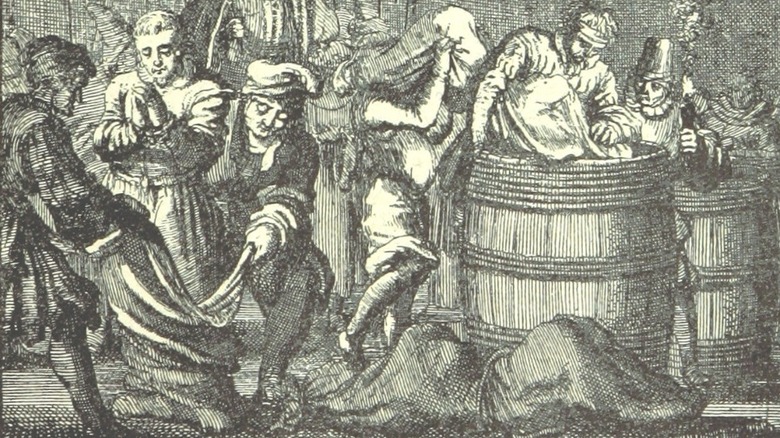The Dark History Of Poena Cullei Execution
It is an unfortunate fact that one of the aspects of life in which we humans display the richness of our creative faculties is in the multifarious ways we have devised to kill each other. The strange punishment of execution by elephant was practiced in India and other southeast Asian countries until as recently as the 19th century. If that doesn't convince you of our death-dealing ingenuity, just take a look at the ridiculous variety of bizarre guns you've never even heard of. There's something about getting crafty with our killing that just floats our bloodthirsty little boats.
A stroll down memory lane to the hall of history's darkest forms of execution and torture naturally leads one to the Roman Empire. In his 2012 book "Spectacles of Death in Ancient Rome," historian Donald G. Kyle wrote of the noxii, slaves convicted of crimes like murder, rape, and robbery who were basically just used as fight fodder for the real gladiators. But the Romans' creative cruelty got even more outlandish than gladiatorial playthings.
Why the poor, innocent animals though?
While murder is a serious crime, killing one's own family is especially heinous. According to Realm of History, the Romans considered patricide (killing one's father) and parricide (killing any other blood relatives) to be crimes that could corrode the very fabric of society. So they thought up the particularly weird punishment of poena cullei, which more or less means "penalty of the sack," for these aberrant criminals. The punishment consisted of being tied up in a leather sack with several wild animals and thrown into a body of water.
Now, before you start judging the various ethical and logical implications of such a punishment, first know that the practice of poena cullei was defended by one of the greatest thinkers of the age, the politician and philosopher Marcus Tullius Cicero. He said that poena cullei "cut the parricide off and separated him from the whole realm of nature," thus keeping his corrupting influence away from the good people in Roman society. So even though it was bizarre, there was at least some kind of reasoning behind poena cullei. The punishment began to be meted out during the reign of Emperor Hadrian, sometime around the 2nd century AD, and finally (and, for the poor innocent animals' sake, thankfully) around the end of the 9th century.

